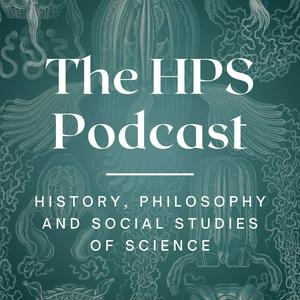S5 E4 - Heather Douglas on Rethinking Science’s Social Contract
This week on The HPS Podcast, Thomas Spiteri is in conversation with internationally recognised philosopher of science and professor at Michigan State University, Heather Douglas. Heather’s work has transformed how philosophers and scientists think about values, responsibility, and the relationship between science and society.In recognition of her contributions, she has been honoured as a Fellow of the American Association for the Advancement of Science (AAAS) and the Institute for Science, Society, and Policy at the University of Ottawa, and has held senior fellowships at the Center for Philosophy of Science at the University of Pittsburgh and, most recently, with the SOCRATES Group at Leibniz Universität Hannover.In this episode, Douglas:Shares her intellectual journey, from early interdisciplinary studies to her philosophical work on scientific responsibility, values, and policyExplains how the twentieth-century “social contract” for science emerged—shaping the distinction between basic and applied research, determining how science is funded, and insulating scientists from broader social accountabilityExamines the enduring appeal of the “value-free ideal” and why this model is increasingly challenged by contemporary social and ethical realitiesDiscusses the pressures that have exposed the limitations of the old social contract for science, including Cold War funding dynamics, issues of public trust, and debates over dual-use researchSets out her vision for a new social contract for science—one that recognises the unavoidable role of values in research, makes public trust and inclusivity central, and supports scientists through stronger institutional structuresOffers practical proposals for reforming science funding, governance, and accountability — arguing that only a more open, responsive, and democratically engaged science can meet the challenges of the twenty-first centuryRelevant Links:Heather Douglas profile – Michigan State UniversityCommittee for Freedom and Responsibility in ScienceScience, Policy, and the Value-Free Ideal (University of Pittsburgh Press, 2009)Douglas, H. & Branch, T.Y., 2024. The social contract for science and the value-free ideal. Synthese, 203(2), pp.1–19. (Open Access)Transcript coming soon.Thanks for listening to The HPS Podcast. You can find more about us on our website, Bluesky, Instagram and Facebook feeds. This podcast would not be possible without the support of School of Historical and Philosophical Studies at the University of Melbourne and the Hansen Little Public Humanities Grant scheme. Music by ComaStudio. Website HPS Podcast | hpsunimelb.org



